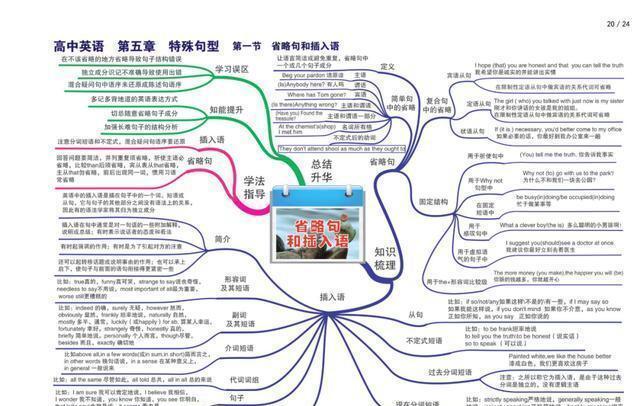省略句是英语语法中的一种结构,可以通过省略句子中的一些成分来表达完整的意思。常见的省略句用法包括主语省略、谓语动词省略、宾语省略、状语省略和并列连词省略。这些省略句的用法不仅可以简化语言表达,还能提高语言的表达效果。

主语省略
- 谓语动词后无主语,常用于口语交流中
- 例如:Is it raining?(Is it)
- 例如:Seen any good movies lately?(Have you)
谓语动词省略
- 句子中的谓语动词可以省略,但是要注意上下文语境
- 例如:What time is it?(What time is it now)
- 例如:Love me, hate me, do whatever you want. (You)
宾语省略
- 可以省略宾语,一般用于日常口语中
- 例如:Want some coffee?(Do you want some coffee)
- 例如:Have you finished your homework? (Have you finished it)
状语省略
- 可以省略时间、地点等状语,但是要注意上下文语境
- 例如:Going to the movies tonight? (Are you going to the movies tonight)
- 例如:(At) Home, I feel comfortable. (When I am at home)
并列连词省略
- 连接两个并列分句时,可以省略并列连词
- 例如:I came, I saw, I conquered. (I came, I saw, and I conquered)
- 例如:I like coffee, he prefers tea. (I like coffee, but he prefers tea)

